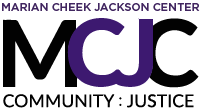This past Monday the Bonner students discussed the role of the encourager in community work and action research planning. Someone working in the community shouldn’t innovate, but rather instigate innovation within community members. At one point in the meeting, Dr. Charles Price (the meeting facilitator) asked us to relate the role of the encourager with each of our respective positions in the community and where we work. It took some moments to come to the decision that I don’t really hold an encourager role, at least not right now.
Most of the fall semester and all of this semester, as of yet, I have been working to construct an archive of the oral history interviews housed by the Jackson Center. I asked to spearhead this job because organization is what I like and how I work most efficiently. The project, at the get go, did not seem like much. I would just be sorting interviews into folders on the computer, maybe finding some documents and scanning those into the computer to then be sorted, right? However, at the start of the spring semester, working with Elizabeth on the archive, the project had come to be dubbed The Monster. The interviews at the Jackson Center were quite disorganized and a lot of crucial documents and information were out of place or completely missing. The Monster has come to require a lot more organization and information retrieval than anticipated, necessitating the recruitment of volunteers and the side-help of other staff. A project that initially appeared so simple has evolved into something where a deadline is difficult to conceive.
I enjoy this type of work: Type A, organization, color-coded folders, and so many to-do lists. But, when Dr. Price asked us to relate the role of the encourager to our community work, like I said, I came to the realization that The Monster is a divergence from “encouraging”–at least in the short term. I’m not hearing the stories of the community, I’m not talking with community members, I’m not actively working with the community residents and students of the university to instigate a relationship between the two. Although I’m not an encourager right now, I think this archive will catalyze such a role.
The public availability of the oral history interviews–through the Jackson Center, in university libraries, maybe even online–will grow into a testament that the community has stories to share and that there are people who want to listen. I’m not crafting these stories–they aren’t my words. I’m just building a platform of accessibility. In the end, hopefully these words made accessible will instigate something. That something… well it’s a little hard to tell what it will be. But something–we’re pushing for something.
– Joe Dayaa

Leave a Reply